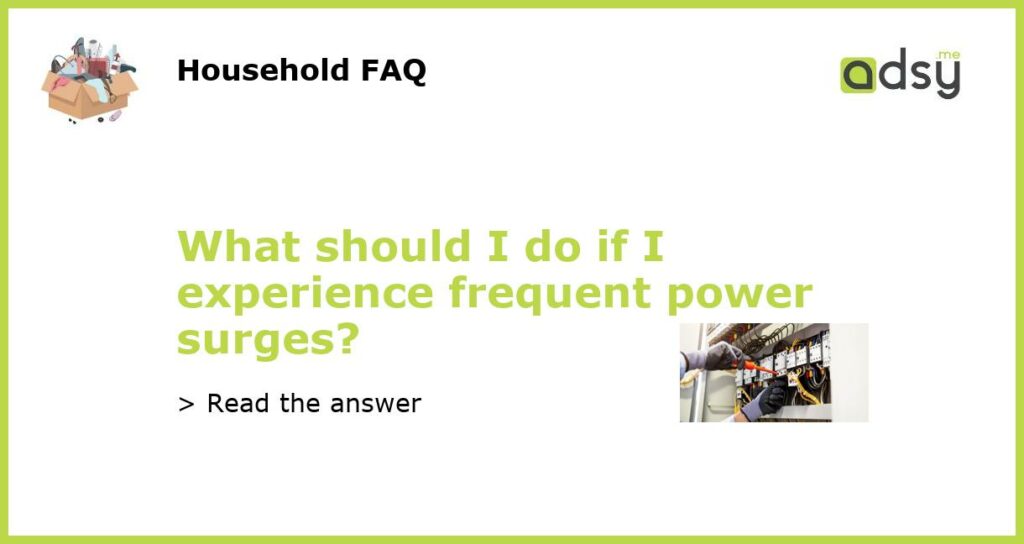Understanding Power Surges
Power surges can be a common occurrence in many homes and can cause damage to electronic devices and appliances. It is important to understand what causes power surges and how to prevent them from happening.
A power surge is a sudden increase in electrical voltage that can last for a fraction of a second or a few seconds. They can occur for various reasons, such as lightning strikes, power grid fluctuations, or the operation of high-powered electrical devices in the vicinity. These power surges can lead to overheating and damage to electronic equipment.
Take Immediate Protective Measures
If you experience frequent power surges, it is crucial to take immediate protective measures to minimize the damage caused and protect your devices. Here are some steps you can take:
- Unplug sensitive devices: Unplug sensitive electronics, such as computers, televisions, and gaming consoles, from the power source during a power surge to prevent any damage.
- Use surge protectors: Invest in surge protectors for all your major electronics and appliances. These devices help divert excess voltage and protect your devices from power surges.
- Consider whole-house surge protection: If you experience frequent power surges, it may be worth considering installing a whole-house surge protection system. This will protect all electrical devices in your home.
Identify the Source of the Power Surges
It is also important to identify the source of the power surges to determine if it is an internal or external issue. Here are some steps to identify the source:
- Check with your utility company: Contact your local utility company to check if there are any known issues with the power grid in your area.
- Hire an electrician: If the power surges are internal, it is recommended to hire a qualified electrician to inspect your electrical system and identify any faulty wiring or faulty appliances that may be causing the surges.
- Use a power monitor: A power monitor can help track voltage fluctuations in your home and identify patterns or specific appliances that may be causing power surges.
Preventing Power Surges
Preventing power surges altogether is not always possible, but there are steps you can take to minimize the risk:
- Unplug devices during storms: During thunderstorms, unplug sensitive electronics to prevent damage from lightning strikes. Even if you have surge protectors, it is best to disconnect them from the power source.
- Invest in high-quality surge protectors: Choose surge protectors that are rated to handle the power requirements of your devices. Look for surge protectors with a high joule rating and a low clamping voltage.
- Upgrade your electrical system: If your home has old or outdated electrical wiring, consider upgrading it to reduce the risk of power surges. Consult a licensed electrician for advice.
Consult with a Professional
If you are experiencing frequent power surges and are unable to identify the source or prevent them, it is recommended to consult with a professional electrician. They will be able to assess your electrical system, identify any underlying issues, and provide guidance on how to mitigate the risk of power surges.

